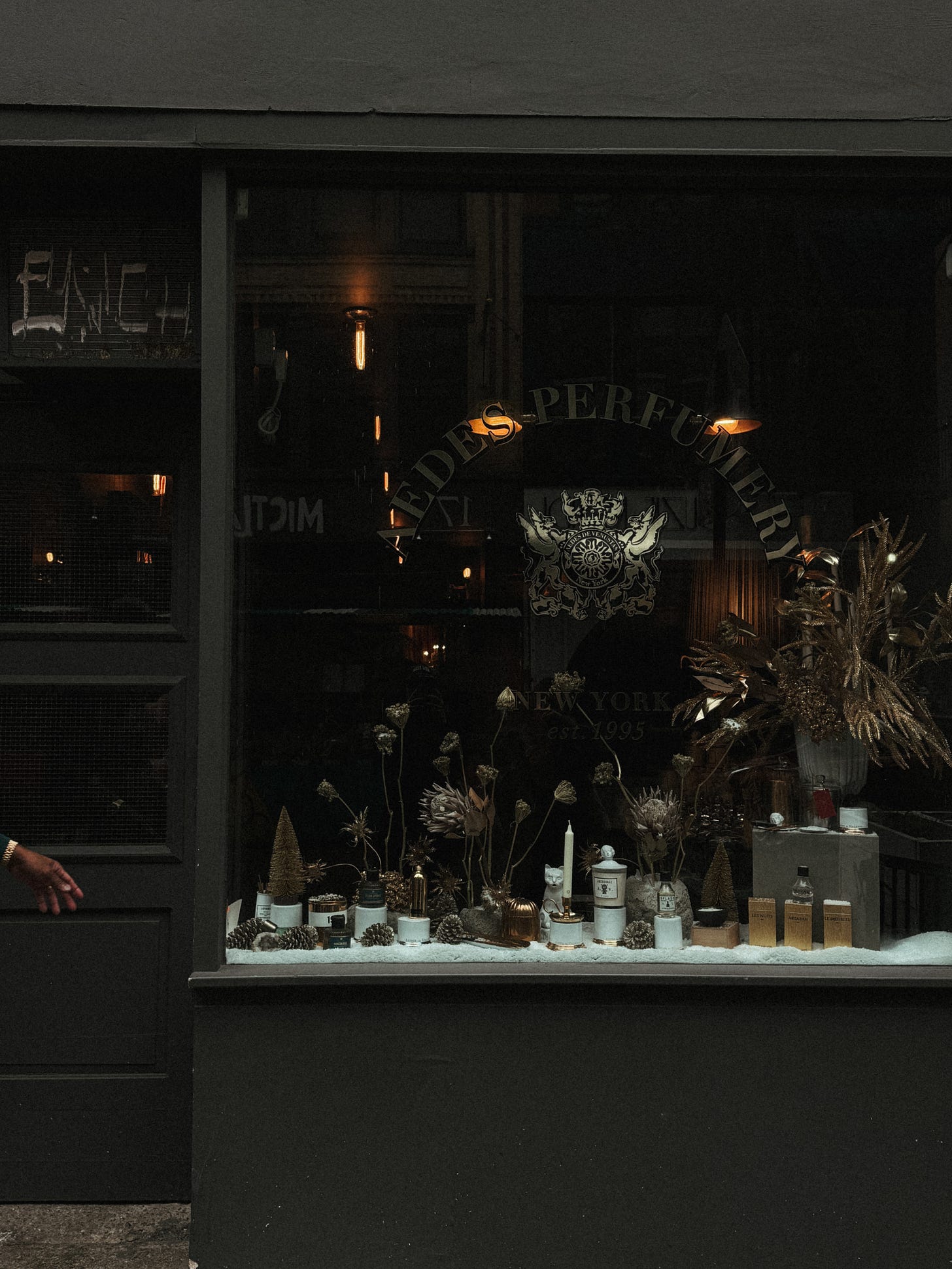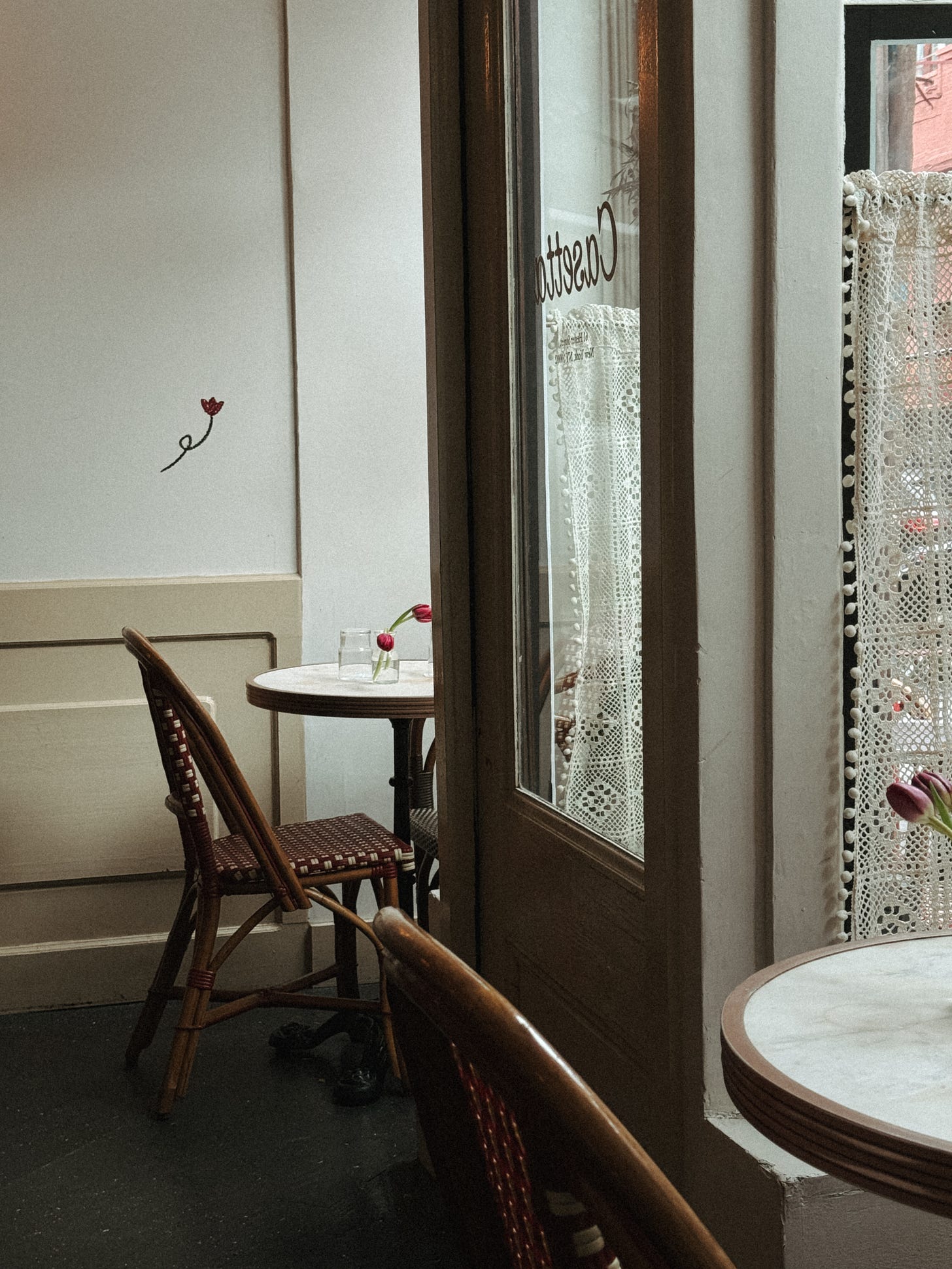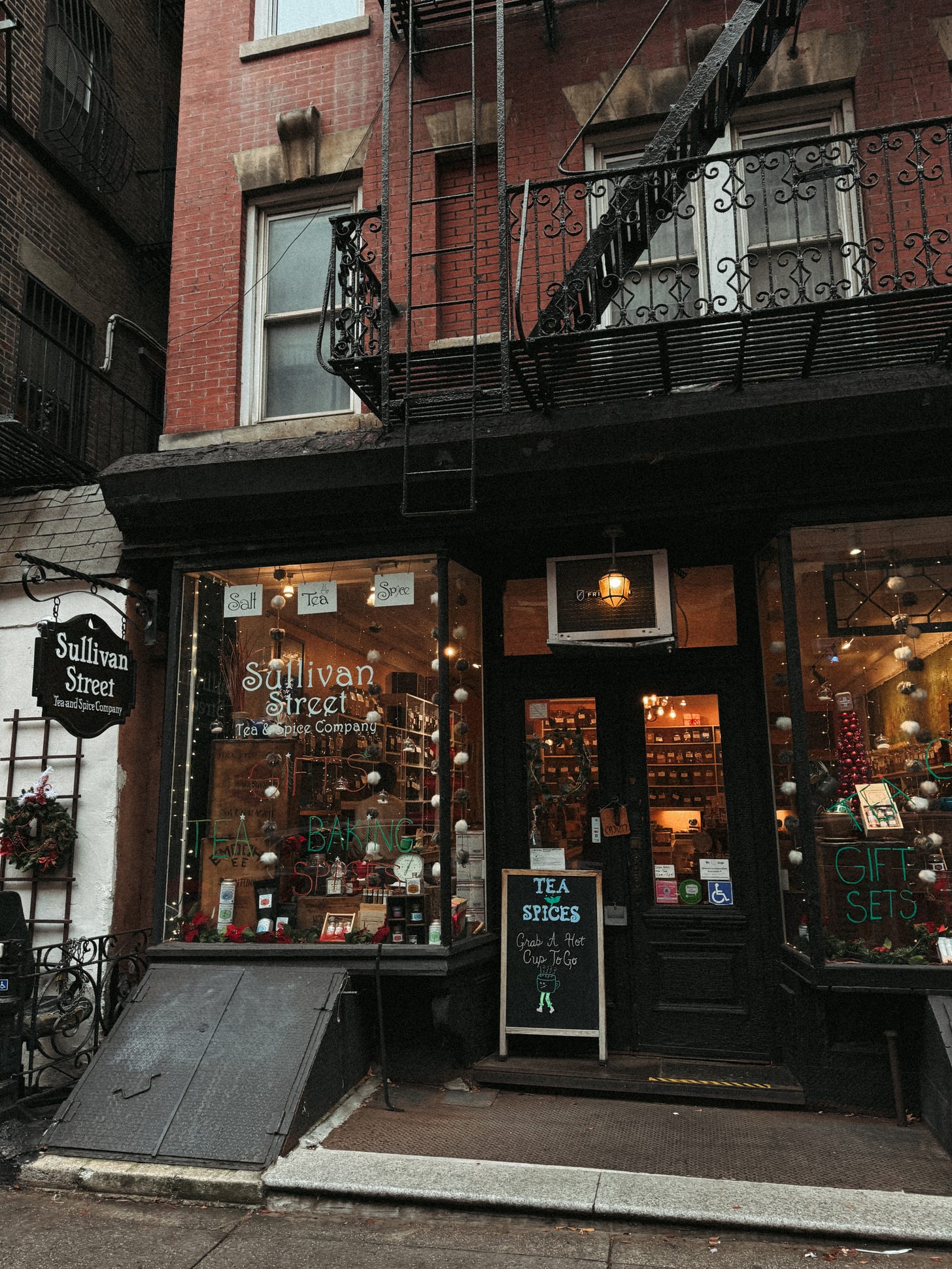the liminal spaces between christmas and new years, a fun new york city adventure, and other news
Hello.
I’ll share some snippets of my yesterday, then we’ll get into some news.
As much as I envy this week of rest and relaxation, I start to lose my mind if I stay home too long. It’s a strange liminal space between Christmas Day and New Years Eve, and no matter how much I try filling my schedule up so I don’t have to think about this post-holiday depression, I still feel… off.
So I decided to go on a little local adventure.



I really wanted to pick up a few books at McNally’s, but I was getting hungry and tired, so I decided to go today. I’ll share the books I picked up in tomorrow’s newsletter.
News:
-When Philosophers Become Therapists
Around five years ago, David sought philosophical counseling from Lydia Amir to address his personal dilemmas and conflicting values, particularly regarding monogamy and life priorities. Through discussions and exploring various philosophical concepts, David redefined his understanding of freedom and power, leading to significant changes in his perspective and behavior, positively impacting his relationship and life choices. This experience reflects the growing trend of individuals seeking philosophical counseling to gain deeper insights and address life's complexities beyond traditional therapy.
-I’m Just a Girl Who Loves Bows, But What Does That Even Mean?
This article creatively dissects the year's hyper-feminine trend through the lens of personal anecdotes and cultural analysis, suggesting that while bows symbolize a playful nod to girlhood and a communal fashion statement, they also reflect deeper societal tensions around identity, autonomy, and the desire to reclaim innocence in an increasingly complex world.
-What Fashion Can Learn From The Hospitality Industry
The article explores how the hospitality industry's focus on personalized, experience-driven travel can offer valuable insights to the fashion sector, particularly in enhancing customer engagement and luxury integration.
-Girl, Stop: Let’s End the Tyranny of 2023’s ‘Girl’ Trends
This analysis suggests a cultural oscillation between venerating and trivializing womanhood through the moniker "girl," encapsulating everything from historic depictions to modern internet trends. It reveals how attaching "girl" to various activities or traits elevates mundane acts into a cultural identity, yet warns against the stereotype's overuse and commodification, ultimately advocating for a fresh cultural perspective beyond the repetitive and marketable 'girl' archetype.
This vivid narrative captures a transformative moment of triumph and reflection for a man once familiar with financial struggle. It's a rich tale of redemption, where the protagonist, accustomed to the sting of rejection and limitation, finds himself in an opulent New York hotel, able to dismiss past rejections with a display of newfound wealth. Yet, amidst the glitz, the story delves deeper, exploring the complex emotions of returning to a world of luxury that feels both alien and intoxicating after a lifetime of scarcity. It's a poignant meditation on the true value of wealth, the unshakable memories of past hardships, and the enduring quest for a sense of home and belonging.
-How Rural America Steals Girls’ Futures
This poignant reflection delves into the experiences of growing up in a small, conservative town in Arkansas, where the aspirations of young girls often clash with the town's constricting social norms. It paints a vivid picture of the yearning to escape and the harsh realities that follow those who stay, underlining the dire consequences of limited education and opportunities on longevity and quality of life. The narrative, deeply personal yet universally resonant, offers a stark look at the societal and health disparities faced by women in rural America, revealing a world where youthful dreams and potential are too often quashed by the weight of tradition and economic hardship.
-The Internet Isn’t Dead, It’s Saturday Night Live
A confrontation of the pervasive nostalgia and disillusionment surrounding the current state of the internet. It challenges the notion that the internet has lost its fun, arguing instead that this perspective is a generational bias similar to how different ages perceive the quality of "Saturday Night Live." The piece suggests that while the internet has indeed changed, becoming more commercialized and regulated, the essence of online creativity and enjoyment hasn't vanished but merely evolved. The author contends that every generation laments the 'good old days' of their youth, overlooking the continuous cycle of change and adaptation inherent to digital spaces. While acknowledging real issues like platform decay and the rise of AI, the article ultimately posits that the internet remains a reflective and ever-changing landscape of cultural engagement.
-How Did Polyamory Become So Popular?
This article discusses the cultural shift towards embracing non-monogamous relationships, particularly in the context of modern media and the changing perceptions of marriage. It highlights how open relationships and polyamory are becoming more visible and accepted, with references to various forms of media and public figures illustrating this trend. However, it also critiques the commodification and superficial adoption of these lifestyles, particularly among the affluent, suggesting that what might seem like a progressive move could be just another form of consumption. The piece reflects on the complexities and consequences of redefining traditional relationship structures, ultimately calling for a deeper, more inclusive understanding of love that transcends mere abundance and extends to broader societal change.
Okay, I love you.
Bye <3















